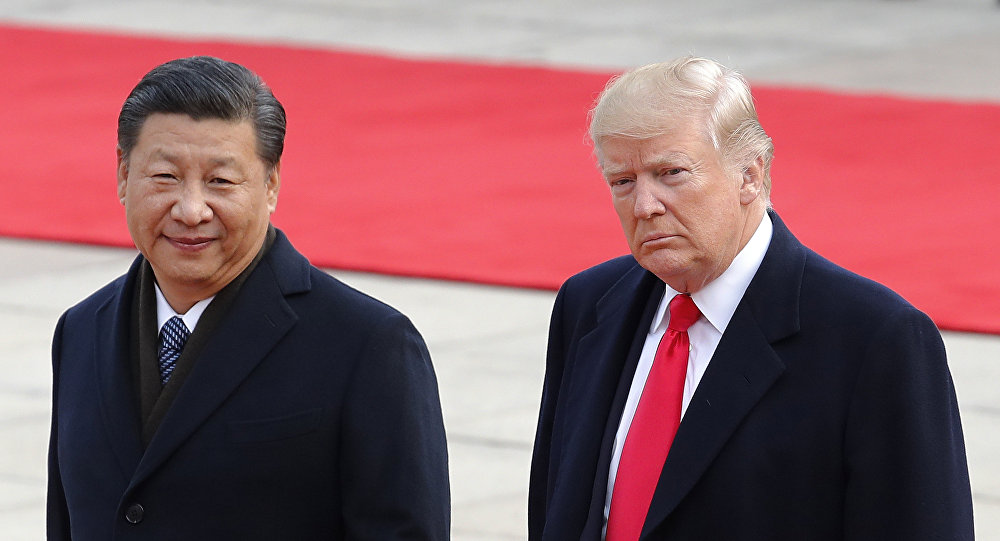TRUMP’S TRADE DEALS WITH CHINA: HIGH EXPECTATIONS, SMALL RESULTS

09.12.2017
The visit of the American President Trump to China in November 2017 mainly focused on participating in ceremonies and signing deals. His administration announced deals worth more than $ 250 billion. The amount also includes previous transactions, such as the purchase of Boeing aircraft, as well as bilateral investments, many of which are non-binding memoranda of understanding.
The attention to trade is due to the fact that the US trade deficit with China increased by 6% in September 2017, and the overall deficit of goods and services increased by 9%. The deal is unlikely to change these macroeconomic trends.
Moreover, American analysts believe that the tax cut in 2018 means a reduction in national savings in the United States and, consequently, a further increase in the trade deficit. According to preliminary estimates, it is very likely that more significant indicators of the trade imbalance will manifest themselves in bilateral cooperation with China.
In addition to the ceremony and deals, the main purpose of D. Trump’s visit to Beijing was direct negotiations on North Korea and on US trade with China. Regarding the DPRK, the main desire of the American leader was to demonstrate a common position with Japan, South Korea and China regarding North Korean nuclear and missile programs.
Throughout 2017, Trump and his team have consistently pushed China to take more serious actions, namely, to stop oil supplies to North Korea. The PRC reluctantly agrees to this, because its main priority is to ensure the preservation of the DPRK regime that benefits it. At the same time, Beijing certainly does not welcome millions of North Korean refugees or the prospect of a united Korea allied with the United States.
Meanwhile, the US Senate Banking Committee voted unanimously for legislation that would provide heavy penalties for Chinese banks supporting North Korea. China is demanding more time to adopt new sanctions and is calling on the United States to negotiate with North Korea for now. But the actions of the US Congress demonstrate the US readiness to escalate pressure on Chinese banks.
As for bilateral trade, during the preparation or during Trump’s visit to China, no attention was paid to the issue of opening the market. These transactions will not lead to any special changes in China’s trade and investment policy. American companies are still dissatisfied with access to the Chinese market.
For example, today China has a 25% import tariff on cars, and allows foreign firms to invest only through joint ventures, in which an American firm must transfer technology to its Chinese partners. In addition, there are still many sectors in which China’s investment restrictions put American companies at a disadvantage.
Financial services, telecommunications, social networks and transport are also additional examples.
Many of the announced deals, including in relation to oil and gas, involve China’s purchase of assets in the United States. Also, in accordance with the current legislation, transactions involving American investments in China are prohibited.
For the sake of objectivity, it should be said that the United States itself is openly playing a double game with regard to China. So, during a visit to Beijing, President Trump publicly stated that he does not blame China for the current state of trade relations; rather, he blames his predecessors, in particular, American Presidents Bush and Obama.
But, despite the generally positive atmosphere, the administration is simultaneously conducting an investigation of Section 301 on unfair trade practices of the PRC.
The government investigation is likely to document factors of unacceptable practices, including cyber theft and forced transfer of American technologies.
At the same time, China may still take some measures to open the market due to the need to increase foreign investment and productivity growth, especially following the results of the 19th CPC Congress. American analysts still estimate that these measures are likely to be limited and consistent.
So, the first step to this was taken already the day after Trump’s departure: China announced that foreign firms in the field of investment banking and insurance will be able to gain majority control in joint ventures.
During Trump’s visit, President Xi noted that China will open its market “in accordance with its own plans and roadmap” and called for mutual respect for the specifics of both sides.
For its part, China is now betting that it can take a firm position on North Korea and on trade, and will still be able to maintain friendly relations with the Trump administration. The question is, will Washington be satisfied with such a restrained approach and consistent measures of China, or will Trump instead decide to implement the protectionist promises voiced during his presidential campaign?
Number of shows: 1172
